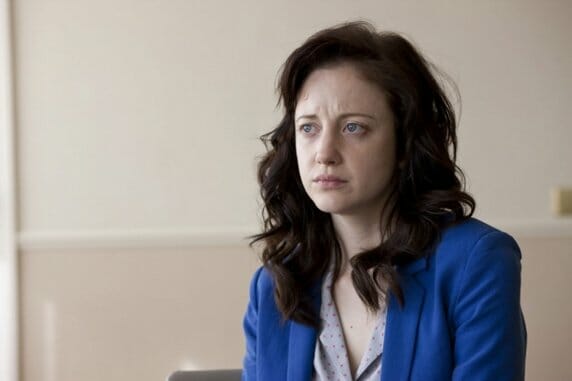Shadow Dancer

A woman’s betrayal of her family serves as the linchpin of the taut political drama Shadow Dancer, directed by James Marsh (Man on Wire, Project Nim). Set during “the Troubles” of the 20th century between Britain and Northern Ireland, the era’s bloody violence often pitted neighbor against neighbor and tore families apart. Screenwriter Tom Bradby began the novel on which the film is based while a television correspondent in Northern Ireland in the 1990s. His perspective as a journalist balances the storytelling from both sides of the conflict, never forcing the audience pick a political ideology.
Andrea Riseborough stars as Collette, a young single mother and somewhat ambivalent terrorist. She lives in Belfast—the Ground Zero of Ireland—along with her mother and two hardliner IRA brothers. When she’s picked up by the police after a bombing attempt on the London subway system, she meets Mac (Clive Owen), an MI5 officer who gives her an ultimatum: Either become an informant against her brothers and their crew or be put in prison for 25 years, away from her young son.
Collette makes the King Solomon-like decision to choose a life with her son, fully knowing that she will pay the ultimate price if her spying is ever uncovered. When her brothers’ assassination attempt on a police officer is foiled by the authorities, suspicions among the IRA members are aroused, and a tense game of cat-and-mouse ensues.
-

-

-

-

-

-

-

-

-

-

-

-

-

-

-

-

-

-

-

-

-

-

-

-

-

-

-

-

-

-

-

-

-

-

-

-

-

-

-

-








































